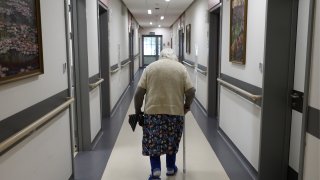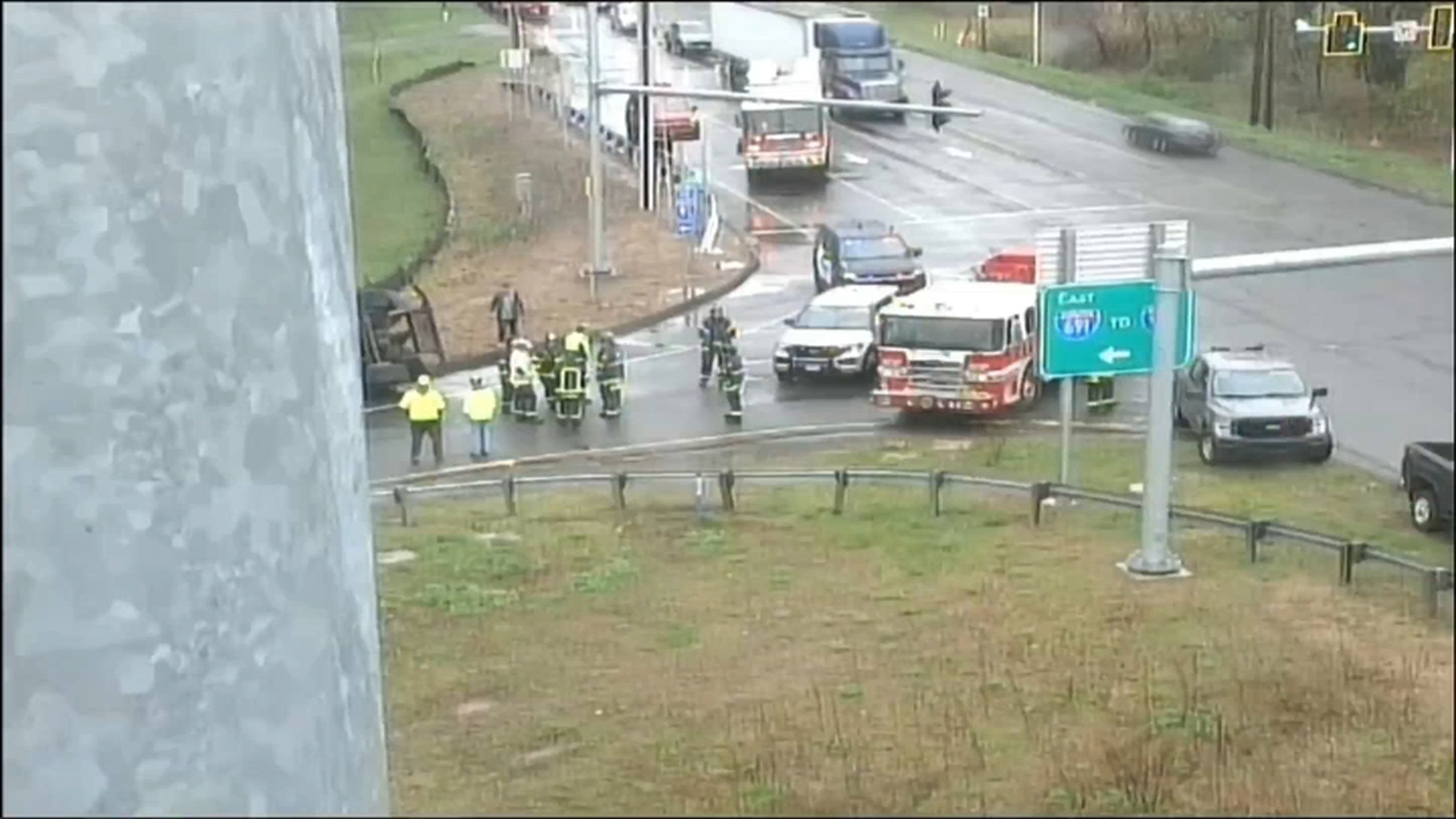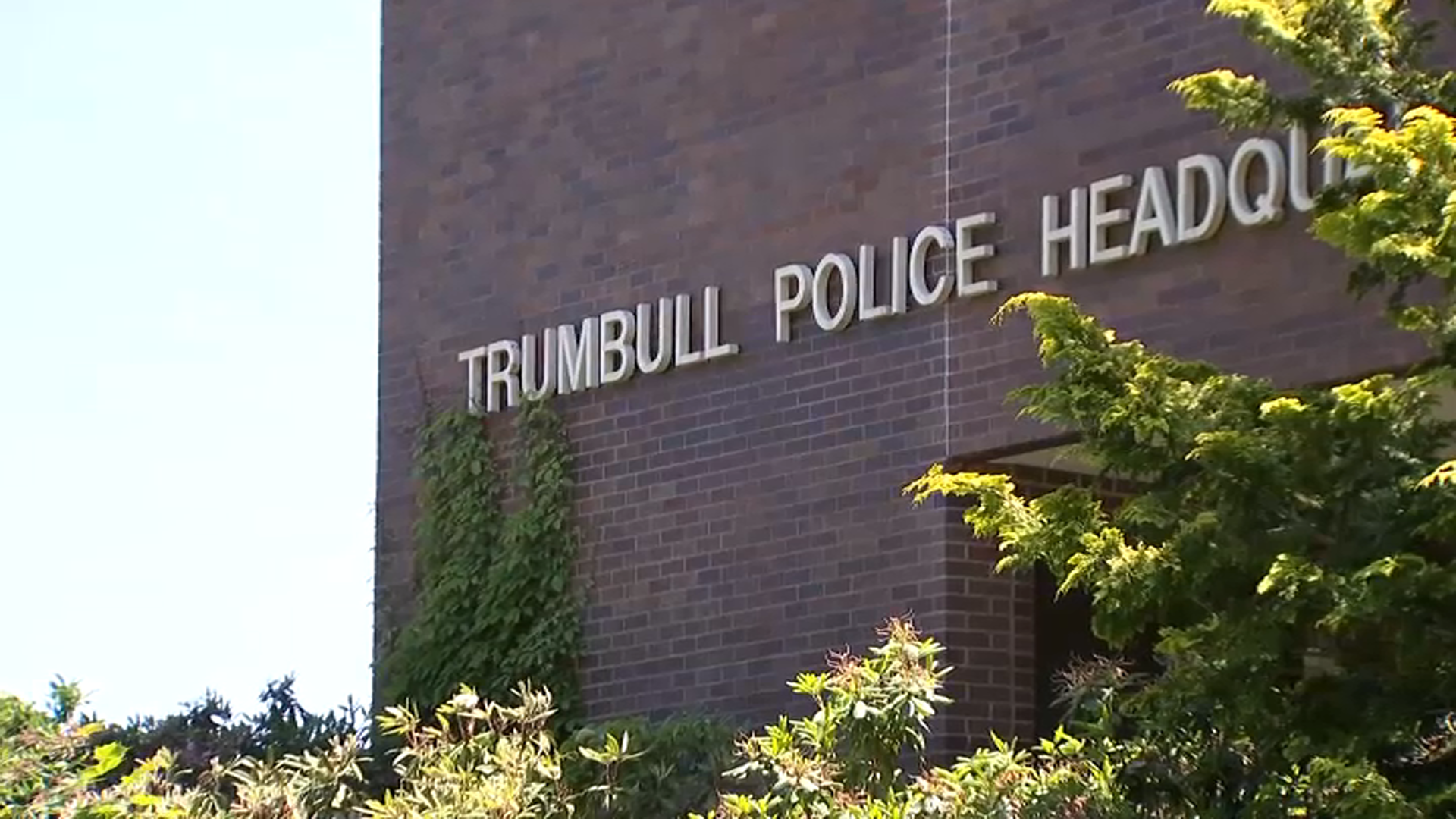
Cambar Edwards says the coronavirus has taken a heavy toll at the Connecticut nursing home where she has worked for the past 24 years, as more than 30 residents have died and many employees are home ill or scared to go to work.
She is a certified nursing assistant at Kimberly Hall North in Windsor. Representatives of the 150-bed home told The Associated Press Friday night that 33 residents there have died from COVID-19, 16 residents have tested positive for the virus and another 66 are presumed positive.
“We really are grieving right now,” said Edwards, 52. “And we know our facility will never be the same with all these residents that we lost. We feel like we lost family members.”
The coronavirus has spread quickly through nursing homes around the country and world.
On Thursday, Connecticut officials released data showing nursing home residents accounted for about a third of the 971 state residents to die from the virus. But labor unions and nursing home owners say the death total is likely higher because the state only counted people who tested positive for the virus and not those suspected of having it. They blame a shortage of testing kits and materials.
The number of deaths in the state associated with COVID-19 increased by 50 to 1,086 on Saturday. Gov. Ned Lamont said, however, that the number of people hospitalized declined for the first time since the outbreak began, decreasing by eight to 1,938.
For most people, COVID-19 causes mild or moderate symptoms, such as fever and cough, that clear up in two to three weeks. For some, especially older adults and people with existing health problems, it can cause more severe illness or death.
Local
Nursing home owners across the state said the spread of the virus in their facilities and the death toll is not indicative of the quality of care being given to residents.
“Connecticut nursing homes have followed all of the guidance and best practices made available by state and federal authorities to keep COVID-19 from entering the building,” Matthew Barrett, president and chief executive of the Connecticut Association of Health Care Facilities, said in a statement Saturday.
“The data continues to show that COVID-19 is making its way indiscriminately into nursing homes in Connecticut and across the nation,” he said. “This means that nursing home operators and employees who are doing all the right things will have to battle the virus through no fault of their own. We must focus on these heroic efforts and use the data to win the battle.”
Edwards, the nursing assistant, said she was scared to go to work when residents began getting sick from COVID-19, but her faith and sense of duty to help people have made her more confident.
“COVID patients, they are somebody’s father, somebody’s mother ... and I would want somebody to take care of me,” she said. “I’m not scared anymore. I put my trust in God. Leave everything into his hand. You do your part and he will do the rest.”
Edwards said there appears to be sufficient personal protective equipment at the nursing home, but staff are limited to two gown changes per shift and have to wear the same N95 masks for days or weeks.
Brenda Anagnos’ mother, Carol Ballard, died at Kimberly Hall North on April 6. She told WTIC-TV that she visited her mother in her dying days, but had to do it outside through a window because of the virus.
“She could see me and I was waving and saying, ‘Mom I love you,’” Anagnos said. “She was trying to tell me she was cold. I called and called and called the doctors and nurses from the window. And I actually got a comment right after that saying Brenda, very nicely, can you please stop calling so much.”
Kimberly Hall North’s owner, Genesis HealthCare, said in a statement Friday night that its thoughts and prayers go out to the families who have lost loved ones. It said it could not comment on individual residents because of federal privacy laws.
“It is a complex virus that is hard to detect and can take weeks to present itself,” the company said. “By the time you have a positive test result, many may have already been exposed. It is likely that we will never know exactly how the virus entered the facility.”
The SEIU 1199NE union represents about 6,000 workers at 59 long-term health care centers in Connecticut. More than 700 of those employees have either tested positive for the coronavirus or are in self-isolation because of possible exposure, including about half the workforce at Kimberly Hall North, union president Rob Baril said. Two workers have died, he said.
Baril said there is a shortage of nursing home workers because many of them are ill, and there is a shortage of personal protective equipment and coronavirus tests, which he blamed on a lax response by the federal government.
At the Whispering Pines Rehabilitation and Nursing Center in East Haven, state officials said 32 residents had tested positive for the virus and 14 had died.
Officials at the nursing home said in a statement, “The temptation when incomplete information such as this is publicized is for members of the public to draw unfair inferences between the number of cases or deaths and the quality of care, which is totally inappropriate and serves only to make the staff in these buildings feel shamed or attacked when they themselves are being asked to put their own lives, and that of their families, on the line every day to come to work and care for our most vulnerable population.”



